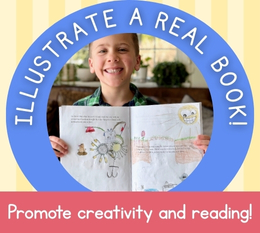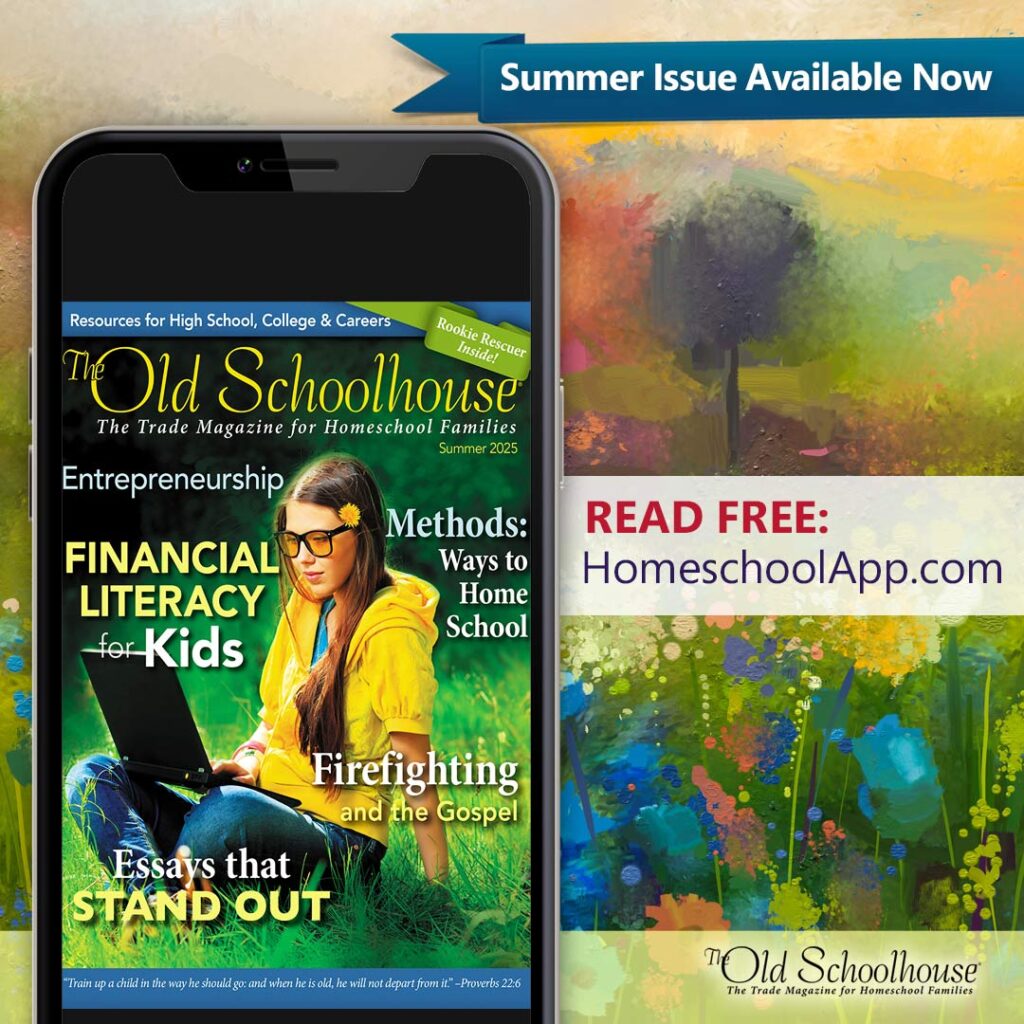The Old Schoolhouse® Product & Curriculum Reviews
With so many products available we often need a little help in making our curriculum choices. The Old Schoolhouse® Magazine family understands because we are in the same boat! Do you need more information on a product before you buy? With over 5,500 products listed in 52 easy-to-use categories, much of the information you need to know is only a click away! Let our reviewer-families help yours.
Afterwards I Knew: Stories from the First and Second World Wars Review by Kim Kargbo
Christine FarenhorstChristian Focus Publications
Geanies House
Fearn, Tain, Ross-shire
IV20 1TW Scotland, UK
http://www.christianfocus.com/
Afterwards I Knew is a collection of 7 stories and 1 poem about World Wars I and II. The stories are fictitious, but they portray accurate events and issues from the wars in Europe. The tales are filled with grace and redemption, portraying the power of the Gospel in difficult times and circumstances.
The first story, "The Hound of Heaven," presents a grandfather putting his grandson to bed. He begins to relate the poem called "The Hound of Heaven." The boy is bored with the poem and asks for a story instead. The grandfather tells him that the poem is a story--his story. He relates how he had wandered far from the teachings of his mother and was a German soldier committing crimes against the Russians. When he was separated from his unit and nearly frozen, the care of an elderly Russian woman saved his life--both physically and spiritually.
In "The Child" we learn of two little girls, one Dutch and one Jewish, who become fast friends at a very young age. By the time they come of age, war has broken out in Germany and Holland. When two young Jewish men come to hide in the village, the Dutch girl falls in love with one of them, but he marries her friend. This results in resentment and a broken friendship. Some years later, she reminisces about her friend, who had moved away; she didn't know where or if the friend had escaped the ravages of war. She visits her friend's childhood home and finds a small child; the boy says he is the son of her former friend, Maria. He is all alone, so she takes him in and protects him from the Nazi soldiers who are looking for him. After a few days, he disappears. Later, she receives a postcard from her childhood friend, who is living in Israel. She says the boy is fine. The Dutch girl's heart had been healed by caring for the boy for those few days, and she had been returned to faith through her trials.
"Feed My Sheep" tells the story of a pastor and his son. The pastor agrees to harbor a Jew during WWII, even though the Jew is an atheist. Eventually arrested along with others in the village who were harboring Jews, and the Jews themselves, the pastor changes places with a Jewish man who is going to be executed. He realizes that the man needs another chance to answer the call of the Holy Spirit on his life.
"And Afterwards I Knew" is another version of an oft-repeated legend from WWII--that of a tablecloth that brought together a long-separated elderly couple who each thought the other was dead.
The story "Four Days in the Life of Albert Tenfold" is about a young man under the rule of his widowed mother. He is plagued by theological questions due to a deeply kept secret involving an unwitting betrayal when he was a child during WWII. He encounters a young woman in a church where they are both praying and hoping to find answers. She has her own deep painful secrets. As they share their stories of guilt, they discover the providence of God and forgiveness. (This story deals with some mature and painful issues.)
"The Gift" tells the poignant story of a boy who worked with his father for a man whose German Jewish wife had been unable to bear children. One day a peddler comes to her house asking for food; he tells her she will have a child in the spring. Indeed, a child is born, and the young boy becomes a special friend to the tiny girl. When she turns 5, he gives her a story Bible so that she can learn about God. Later, though, peer pressure at school causes him to betray his young charge. His guilt plagues him, but he has an opportunity later to redeem himself. He and some of his friends attempt to free the young girl's father and other hidden family members who had been arrested by the Gestapo.
In "The End of a Thing" we experience a gamut of emotions with Sanna, a young half-Jewish girl who has fabricated a story about her mother dying before her birth to hide her pain. The friendship of a young girl, Nelly, and her family leads to a series of events that brings about a miraculous conclusion.
These stories are heartwarming and heartrending simultaneously. Given the themes of the stories and the depth of emotion, they are not written for young audiences, but teenagers and adults will enjoy them and be challenged by the lessons they contain. I highly recommend this book and any others that Ms. Farenhorst might write. They are literary gems and filled with Truth.
Do you want to get the word out about your product or service to the homeschool community? Email the TOS Advertising & Sales Director, and share a little about what you´d like showcased, and we can help with that! Also, check out the magazine’s media kit and rate card at www.Homeschool.Market.


















































